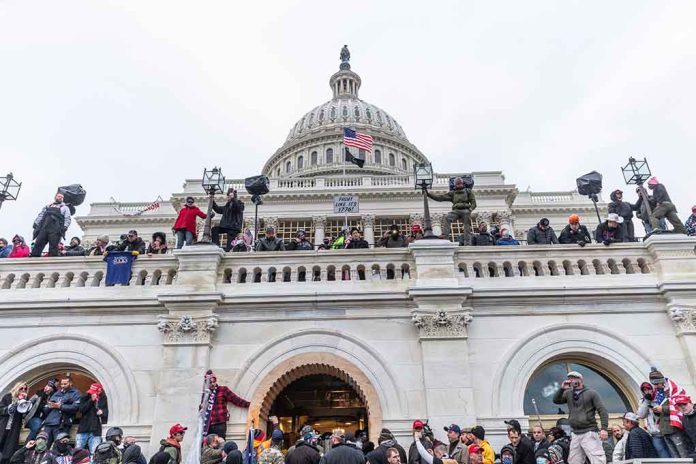
The trial date for the $30 million wrongful death lawsuit filed by Ashli Babbitt’s family has been set for July 20, 2026, as determined by U.S. District Judge Ana Reyes.
At a Glance
- Ashli Babbitt’s family filed a $30 million wrongful death lawsuit against the U.S. government
- The trial is scheduled to begin on July 20, 2026
- U.S. District Judge Ana Reyes rejected initial proposals for extended trial dates into late 2027
- The lawsuit alleges negligence by U.S. Capitol Police Lt. Michael Byrd in shooting Babbitt during the January 6, 2021 events
Trial Date Set After Lengthy Deliberations
U.S. District Judge Ana Reyes has established July 20, 2026, as the trial date for the $30 million wrongful death lawsuit filed by Ashli Babbitt’s family against the U.S. government. This decision came after both parties indicated that the original 2025 timeline would be challenging to meet. Judge Reyes set this date after rejecting initial proposals that would have extended the trial into late 2027, deeming such delays “unacceptable.”
https://www.youtube.com/watch?v=cwzsQvRFygc
The lawsuit, filed by conservative legal group Judicial Watch on behalf of Babbitt’s estate and her husband, Aaron Babbitt, alleges that U.S. Capitol Police Lt. Michael Byrd was negligent in shooting Babbitt during the January 6, 2021 Capitol incident. However, an internal investigation previously found that Byrd had acted lawfully.
Discovery into the shooting death of Ashli Babbitt is commencing. The court today also set a date of July 20, 2026 for trial in Ashli's wrongful death lawsuit. @JudicialWatch moving full speed ahead for Ashli's family. https://t.co/Lw5l8hqsl1
— Tom Fitton (@TomFitton) September 20, 2024
Concerns Over Discovery Process
Both parties expressed concerns that a December 2025 trial date might hinder evidence collection from law enforcement and other witnesses. They initially requested a pretrial schedule extending into 2027, citing the need for a 16-month discovery period due to the large number of witnesses and difficulty in scheduling depositions.
“This case is not going to turn into a discovery quagmire,” Judge Reyes stated firmly, emphasizing her determination to keep the case on track.
The judge criticized both parties for their initial discovery proposals and their inability to narrow down factual or legal issues. She made it clear that she expects the attorneys to work out their differences without bringing discovery disputes to her attention.
Background of the Case
Ashli Babbitt, a protester during the January 6th events, was shot and killed by law enforcement while attempting to climb through a barricaded door in the U.S. Capitol. The incident occurred during a rally supporting then-President Trump, which Babbitt had traveled alone to attend.
Video footage shows Babbitt attempting to climb through a smashed glass panel before being shot by Capitol officer Lt. Michael Byrd. Federal prosecutors have detailed the chaotic scene and the actions leading to Babbitt’s shooting, emphasizing the imminent threat perceived by Byrd at the time.
The U.S. Attorney’s Office for the District of Columbia and the U.S. Capitol Police have cleared Byrd of criminal and internal wrongdoing. However, Babbitt’s family maintains that her death was wrongful and seeks $30 million in damages through this lawsuit.





